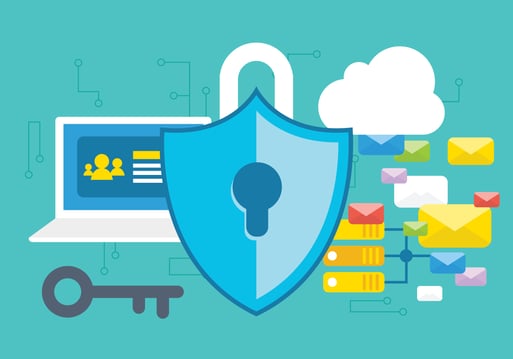Managing Your Website – Part 3: Website Backup & Security
David Gonzales | 1 Dec 2016
Protecting your investment is just good business. Following best practices around backing up your website’s data and a good website security plan are your best defense against expensive offline or down time.
Consistency and trust are big features in technology’s system of values. You want to be there when a potential customer comes looking for you, and they should trust and feel secure navigating around your site.

There are some simple basics to keep in mind – never use admin or info as part of your log-in protocol, for example. Other precautions might require a bit more planning.
Website Back Up
Don’t ever work on your live site. Separate out your development site from your main site in order to test new material, or when fixing glitches. Figure out a backup solution – either cloud storage or another server somewhere.
If you are using a CRM such as Wordpress, there are ways to schedule automatic backups of your content. This is usually triggered by a plug-in that will itself need to be updated from time to time.
A few other considerations for backing up your content:
- Will you backup your database and files at the same time?
- How often will you backup your site?
- Can you access your backup when you’re away from the office in case of an emergency?
Website Security
It’s important to have a security plan in place because sites do get hacked or attacked (or in a best scenario, overloaded with traffic from an overly successful promotion), it can bring your site down. Having your site go down is already a headache, but if your customers see this, it may raise questions in their mind about security. They could lose faith in your site and your product – and the trickle down from that is you can lose customers. For a high profile client doing e-commerce that would be very bad.
How to keep your website secure:
- Take advantage of software updates; the research and development put into improving your products makes it imperative to keep your site up to date with all the latest plug-ins and versions. Most of these updates cover previously exposed security risks.
- Use https as your site’s connection protocol rather than http. Formerly used for securely transferring information, on contact pages, for example, more and more sites are switching to https, which encrypts all communication between your website and your browser. As a bonus, you will likely get a better search ranking on Google; as they are promoting these types of connections.
- Monitor your site regularly for malicious attacks or security breaches. Your hosting company will probably offer levels of service to monitor your site for unusual activity, or fix it in the case of an outage or crash. You might consider using a second-party security provider, there are free and more robust paid options available.
For more, read parts 1 and 2 of this series.
Contact us to see what we can do for your website security.

